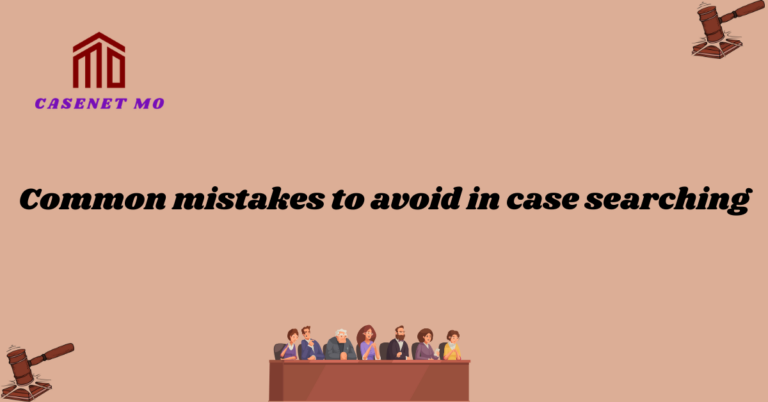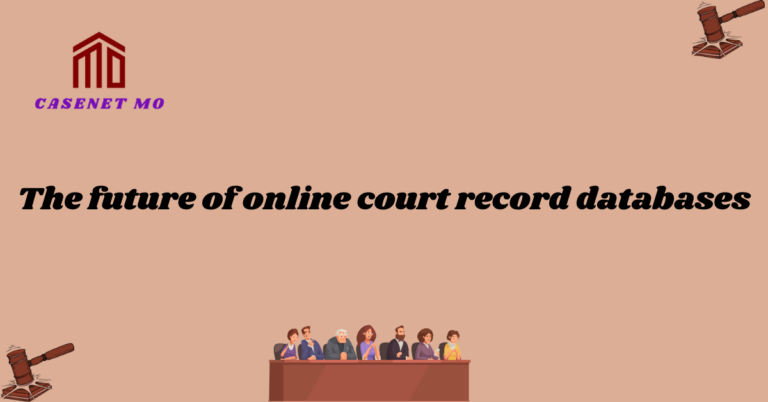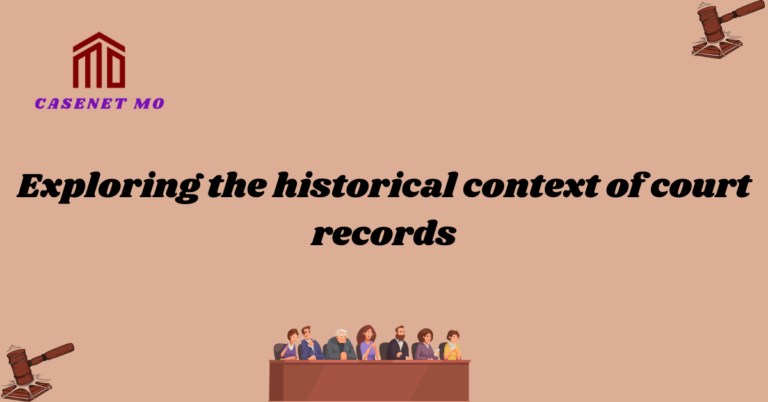Indiana Criminal Cases Guide: Your Comprehensive Resource
In the realm of the legal system, understanding criminal cases is crucial for both professionals and individuals seeking knowledge. Whether you are a law student, a legal practitioner, or simply someone with a curiosity for the complexities of the criminal justice process, this comprehensive guide is here to provide you with the essential information you need.
Through concise and informative content, we aim to break down the complexities of Indiana criminal cases into easily digestible information. Whether you are studying for an exam, preparing for a case, or simply seeking a deeper understanding of the legal processes at play, this guide equips you with the knowledge you need.
The Importance of Understanding Criminal Cases
Understanding criminal cases is essential for various reasons. For legal professionals, it is crucial in effectively representing their clients and ensuring a fair trial. For law students, it helps them develop a strong foundation in criminal law and prepares them for their future careers. Additionally, for individuals who want to navigate the legal system on their own, having knowledge of criminal cases is vital to protect their rights and interests.
Navigating the Intricacies of Indiana Criminal Cases
With a focus on Indiana criminal cases, this guide is designed to be your go-to resource for navigating the intricacies of the state’s legal system. Indiana has its own unique set of laws and procedures, and understanding them is crucial for anyone involved in criminal cases within the state.
Understanding the Initial Stages
The initial stages of a criminal case are pivotal in setting the foundation for the entire legal process. This section will delve into the arrest and investigation process, shedding light on the rights of the accused, the role of law enforcement, and the importance of due process.
Navigating the Trial Process
The trial process is where the evidence is presented, witnesses testify, and the fate of the accused is determined. This section will provide a comprehensive overview of the trial process in Indiana, including the selection of the jury, opening statements, examination and cross-examination of witnesses, and the rules of evidence.
Understanding Sentencing and Appeals
Once a verdict is reached, the sentencing phase begins. This section will explore the various factors considered during sentencing, such as the severity of the crime, the defendant’s criminal history, and any mitigating or aggravating circumstances. Additionally, it will provide insights into the appeals process and the grounds on which a conviction can be challenged.
Breaking Down the Complexities
Through concise and informative content, we aim to break down the complexities of Indiana criminal cases into easily digestible information. Whether you are studying for an exam, preparing for a case, or simply seeking a deeper understanding of the legal processes at play, this guide equips you with the knowledge you need.
Explaining Legal Procedures
Legal procedures can often be confusing and overwhelming for those not familiar with the legal system. This section will break down the various legal procedures involved in Indiana criminal cases, including arraignments, pre-trial motions, discovery, and plea bargains. By understanding these procedures, readers will have a clearer picture of the steps involved in a criminal case.
Understanding Relevant Statutes
Statutes play a crucial role in shaping criminal cases. This section will provide an in-depth exploration of the relevant statutes in Indiana, highlighting key provisions and their implications for criminal cases. By understanding the statutes, readers will be able to identify the legal framework within which their case operates.
Gaining Practical Insights
Practical insights are invaluable when it comes to navigating the intricacies of criminal cases. This section will provide practical tips and guidance based on real-life experiences, helping readers understand the practical aspects of Indiana criminal cases. From interacting with clients to negotiating plea agreements, these insights will provide readers with a comprehensive understanding of the practical considerations in criminal cases.
Empowering Readers with Knowledge
Our goal is to empower you with the resources necessary to comprehend and navigate the intricate world of criminal cases in Indiana. By providing comprehensive and informative content, we aim to equip readers with the knowledge they need to confidently navigate the legal landscape.
Comprehending Rights and Responsibilities
Understanding your rights and responsibilities is fundamental in any criminal case. This section will explore the rights of the accused, the responsibilities of law enforcement, and the obligations of legal professionals. By understanding these rights and responsibilities, readers will be able to protect themselves and make informed decisions throughout the criminal justice process.
Exploring Case Studies
Case studies provide valuable insights into the practical application of legal principles. This section will analyze real-life Indiana criminal cases, examining the facts, legal arguments, and outcomes. By studying these case studies, readers will gain a deeper understanding of how the law is applied in practice and the factors that influence the outcome of a case.
Navigating the Legal Landscape with Confidence
Navigating the legal landscape can be daunting, especially for individuals without a legal background. This section will provide guidance on how to navigate the legal system with confidence, including tips on finding legal representation, understanding court procedures, and effectively communicating with legal professionals. By empowering readers with this knowledge, we aim to alleviate the stress and uncertainty associated with the legal process.
FAQs
What is the process of an arrest in Indiana?
When a person is suspected of committing a crime in Indiana, law enforcement officers have the authority to make an arrest. The process typically begins with the issuance of an arrest warrant, which is a court order authorizing the arrest of the individual. Once the arrest warrant is obtained, law enforcement officers will locate and apprehend the person. It is important to note that in certain situations, such as when a crime is committed in the presence of an officer, a warrant may not be required. After the arrest, the individual is taken into custody and is usually informed of their rights, commonly known as Miranda rights, which include the right to remain silent and the right to legal representation. Following the arrest, the person may be transported to a police station or holding facility for further processing.
What happens during the investigation phase of a criminal case?
After an arrest is made, law enforcement officers conduct a thorough investigation to gather evidence and build a case against the accused. The investigation phase involves various activities such as collecting physical evidence, interviewing witnesses, analyzing forensic evidence, and reviewing surveillance footage. Investigators may also seek search warrants to gather additional evidence. The goal of the investigation is to establish a strong case that supports the charges brought against the defendant. It is important for investigators to follow proper protocols and adhere to legal standards to ensure the integrity of the evidence collected.
How does the trial process work in Indiana criminal cases?
In Indiana, criminal trials typically consist of several stages, including jury selection, opening statements, presentation of evidence, witness testimony, closing arguments, and jury deliberation. During the trial, both the prosecution and the defense have the opportunity to present their case and challenge the evidence presented by the opposing party. The judge oversees the proceedings, ensures a fair trial, and provides instructions to the jury regarding the applicable laws and legal principles. At the conclusion of the trial, the jury deliberates and delivers a verdict of guilty or not guilty. If a person is found guilty, the judge will impose a sentence based on the severity of the crime and other relevant factors.
What are the rights of the accused during a criminal case in Indiana?
When facing criminal charges in Indiana, individuals have certain rights guaranteed by the state and federal constitutions. These rights include the right to legal representation, the right to remain silent, the right to a speedy and public trial, the right to confront witnesses, and the right to be presumed innocent until proven guilty. It is crucial for individuals to be aware of their rights and to exercise them appropriately throughout the criminal case process. Legal counsel can provide guidance and ensure that these rights are protected and upheld.
How are sentences determined in Indiana criminal cases?
In Indiana, sentences for criminal convictions are determined based on various factors, including the severity of the offense, the defendant’s criminal history, and any aggravating or mitigating circumstances. The judge has discretion in sentencing and considers these factors, as well as any statutory guidelines, when imposing a sentence. Sentences can range from probation or fines for minor offenses to imprisonment for more serious crimes. In certain cases, the judge may also order additional penalties, such as community service, restitution, or drug treatment programs. It is important for individuals involved in criminal cases to understand the potential sentencing options and to be prepared for the possible outcomes.
Where to get help for Indiana criminal cases?
For additional resources and support related to Indiana criminal cases, there are various organizations and agencies that can provide valuable assistance. The Indiana State Bar Association offers resources for legal professionals and individuals seeking information on criminal law. Local public defender offices can provide legal representation for individuals who cannot afford an attorney. Additionally, law libraries and online legal databases can be valuable sources of information on Indiana criminal law. It is recommended to consult with legal professionals and trusted sources to ensure accurate and up-to-date information.







